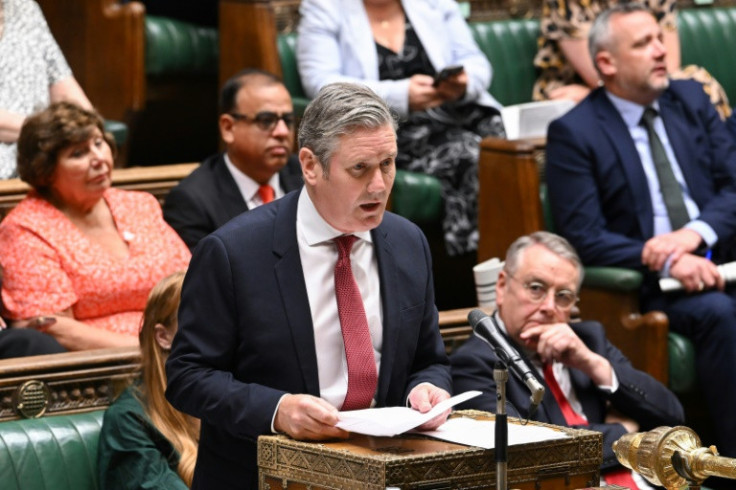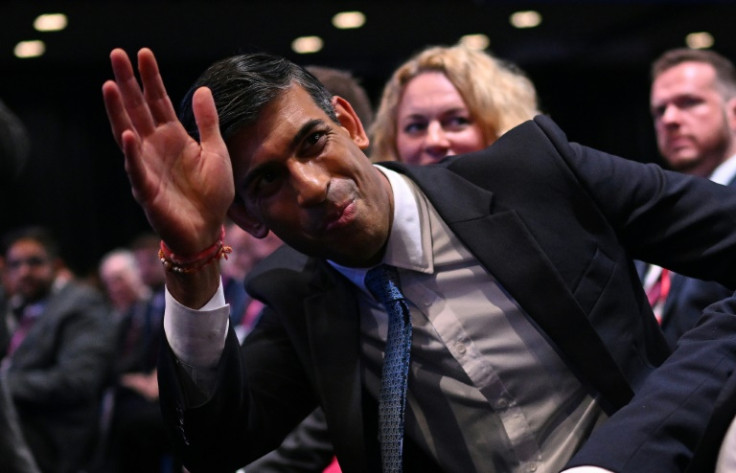Labour Defeat SNP to Secure 'Seismic' By-Election Victory in Rutherglen and Hamilton West
For Labour, the by-election represented an important battleground ahead of the next UK general election, with the Labour leader Sir Keir Starmer declaring it a "seismic" night and that people in Rutherglen and Hamilton West had sent "a clear message".

Labour has defeated the SNP to win the Rutherglen and Hamilton West by-election by a landslide margin.
The party's candidate, Michael Shanks, took the Westminster seat with 17,845 votes - more than double the number polled by the SNP's Katy Loudon. The result marked a swing of 20.4 per cent from the SNP to Labour.
Labour leader Sir Keir Starmer declared it a "seismic" night and that people in Rutherglen and Hamilton West had sent "a clear message".
"I have always said that winning back the trust of people in Scotland is essential.
Tonight's victory is the culmination of three-and-a-half years of hard work and humility on that journey," Starmer added.
The by-election was triggered after former SNP MP Margaret Ferrier was ousted by her constituents for breaking Covid rules.
The SNP has been embroiled in scandal in recent months after leader Nicola Sturgeon resigned under a cloud of controversy.
Today's by-election was the first major electoral test for the nationalists since Humza Yousaf took the reins. And it was a brutal reality check for the Scottish National Party.
SNP candidate Katy Loudon's 8,399 votes represented a 27.6 per cent share of the turnout which was down by 16.6 per cent in the 2019 general election.
The by-election drew a turnout of just 37.19 per cent, down from 66.48 per cent at the snap 2019 general election, when 53,794 valid votes were cast. Mr Shanks collected 17,845 votes – a majority of 9,446.
Speaking to Sky News after his win, the Labour candidate said: "There's no doubt that this result shows that there's no part of the United Kingdom that Labour can't win. It's been a long time in Scotland - Labour building back to a place where people can trust us again."
Shanks continued: "The leadership of Keir Starmer and Anas Sarwar has got us to a place where people have put their trust in us. But it shows fundamentally that people are fed up with the division of the SNP and want to vote for something else. And it's clear from this by-election that people are willing to do that."
A total of 14 candidates stood in the constituency.
The Scottish Conservatives backed Glasgow councillor Thomas Kerr, student Cameron Eadie stood for the Scottish Greens, while data analyst Gloria Adebo ran for the Scottish Liberal Democrats.
For Labour, the by-election represented an important battleground ahead of the next UK general election.
During the campaign, Labour stated a win in Rutherglen and Hamilton West could help springboard the party to Number 10. Before the by-election, Labour had just one MP in Scotland.
Mr Starmer's party is now hopeful that Scottish Labour will make gains against the SNP at the next general election, which could potentially pave the way for Labour's return to power at Westminster.
Labour currently wields a poll lead over the Conservatives of around 20 points, which appears unchanged in the aftermath of the Tory Party Conference earlier this week.
After 13 years in power – under five different leaders – the Conservatives find themselves well behind the opposition party, following multiple scandals under ex-prime minister Boris Johnson and widespread economic woes.

At the Conference this week, Prime Minister Rishi Sunak attempted to close this gap by making several bold policy announcements, such as the controversial decision to cancel HS2, a ban on cigarette sales, and tougher migration rules.
Chancellor Jeremy Hunt also promised a rise in the national living wage, although stopped short of announcing tax cuts, citing the financial difficulty the country is facing.
Last month, The Bank of England held interest rates at 5.25 per cent after a close-running vote opted against a 15th increase in a row.
Interest rates have been rising consistently since 2021, in an attempt to combat inflation, and are currently at their highest level for 15 years.
Sunak promised at the start of the year that he would "halve inflation"; it would have to fall to about 5.3 per cent in December to meet that target.
In March, he unveiled a budget aimed at tackling a cost-of-living crisis — which has sparked strikes as many wages fail to keep pace.
The past year, soaring prices have caused a cost-of-living crisis to run rampant across the UK, with rising food and energy bills contributing to record-breaking inflation levels.
© Copyright IBTimes 2025. All rights reserved.






















